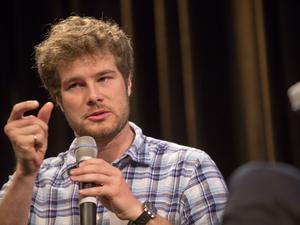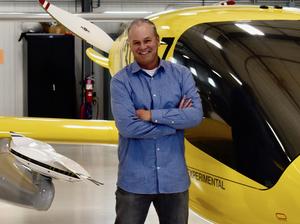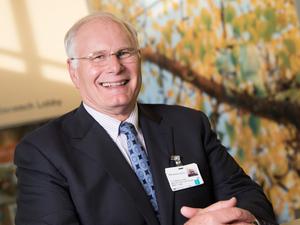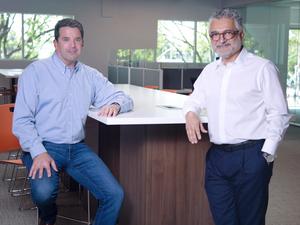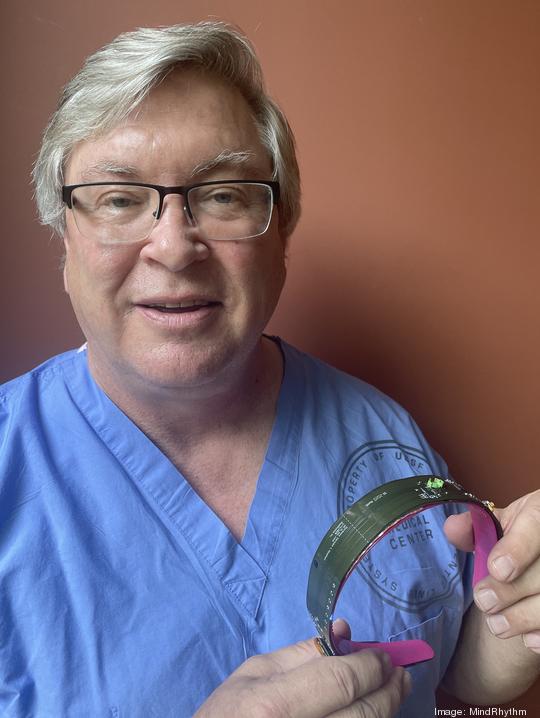
When treating a person who's suffered a stroke, it matters a lot what kind of stroke it was.
It's particularly important to know whether the stroke was caused by a blood clot in one of the large arteries leading to the brain. That's because that type of stroke, known as a large vessel occlusion, needs to be treated right away, but not every hospital is equipped to provide the necessary treatment.
Unfortunately, with the equipment they typically have, first responders generally can't tell whether a patient has suffered a large vessel occlusion stroke and may end up sending the person to a facility that can't treat one.
"The difference between getting that treatment and not getting that treatment is very commonly the difference between that person walking out of the hospital two days later and that person being in a nursing home for 30 years, permanently disabled," said John Keane, co-founder and CEO of MindRhythm Inc., a Cupertino-based startup.
To help first responders get stroke patients the care they need, MindRhythm has developed a portable, disposable tiara-like headset called Harmony that can diagnose large vessel occlusion events. The device uses a sensor to measure the heartbeat in a patient's head, something the company calls a "headpulse." The headpulse of those who have suffered a large vessel occlusion stroke changes significantly during those events, according to the company.
Harmony can detect those changes and alert caregivers. The headband also has a built-in GPS antenna and can transmit to a hospital a patient's location so caregivers can prepare for the person's arrival.
The device’s portability and disposability are key to its appeal. Because Harmony is meant to be used by first responders arriving at the scene, the lighter its weight, the better.
Strokes are "among the worst things that can happen to a human being," Keane said. "With our simple technology getting patients to the right hospital, we believe we'll have a dramatic impact on the lives of patients."
MindRhythm's founders have spent years researching stroke care
Dr. Wade Smith and Paul Lovoi, who have each been researching stroke diagnosis and care for more than a decade, co-founded MindRhythm in 2019. Smith is chief of the neurovascular division at the University of California, San Francisco. Lovoi, a physicist and entrepreneur, focused his research efforts on stroke after his wife died from the ailment in 2003.
MindRhythm is one of several companies working on devices to monitor or detect strokes. Los Angeles-based Eclipse Diagnostics Inc. is developing an at-home blood test to allow people at risk of strokes to regularly check their risk levels. San Francisco-based Viz.AI has developed artificial intelligence-powered software that can diagnose large vessel occlusion strokes from CT scan images. Viz.AI raised funding earlier this year to expand its services into cardiology and pulmonary care.
The difference between what MindRhythm is doing and those companies' solutions is that the latter are generally trying to adapt and work with existing technologies, meaning that they are limited to those technologies' shortcomings, Keane said.
"They’re not designed to be used in an ambulance, they’re not designed to be used by paramedics up three flights of stairs," he said. "We’re the only company that’s designing and executing on something specifically for ambulances."
MindRhythm raised $5 million in seed round last month from DCVC, Aestus Capital, Perseverance Capital Management, Blue Fog Capital and other investors. Keane said he expects the company will need to raise another $10 million as it seeks the Food and Drug Administration's approval of Harmoney and for manufacturing and marketing of the device.
"Everybody is connected to stroke somehow ... You know somebody who’s had a stroke, who's died of a stroke," Keane said. "I've worked with a lot of different medical products, and most of them are very, very complicated ... This situation is simple, it’s 'get me to the right hospital.'"
